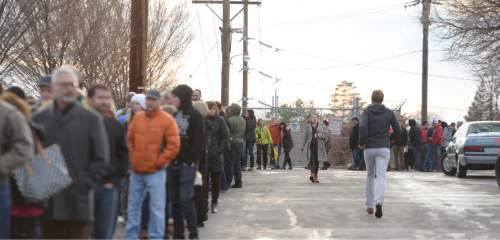This is an archived article that was published on sltrib.com in 2016, and information in the article may be outdated. It is provided only for personal research purposes and may not be reprinted.
This is a good problem to have.
Utah voters Tuesday swamped the Republican and Democratic parties' presidential caucuses. Lines were long and waits were longer. The last-minute demand for information on how to participate in the process temporarily crashed the Utah Elections Office website.
But, when it was all over, more than 100,000 people cast their ballots in one of the two contests that were, and that remain, fluid and divisive enough that many more voters than usual have a reason to feel that their voices still count.
And, while circumstances may not drive such high levels of interest every election year, the willingness of Utah voters to go to such lengths to cast their ballots has earned them the honor of not having to work so hard next time.
There is no reason why voting in a presidential — or any other — primary should be so difficult. Limited as it was to a few locations and a few hours, run and funded by the parties themselves, the system barely kept up with the demand. And there is no telling how many qualified voters gave up and walked away rather than wait for hours in line.
Utah Democrats Tuesday were quick, and correct, to point out that they had wanted a real statewide primary, run by the state, with regular voting hours and the full complement of polling places. But the state's Republican-dominated Legislature wouldn't spend the money.
The defense of that decision was that nobody predicted the level of interest spawned by this year's presidential campaign, with no incumbent in the race and each party's base energized by a decidedly non-establishment candidate.
Utah is, after all, a low-voter-turnout state. And our Republican power structure, wedded to its antiquated caucus and convention system, seems to like it that way.
But Tuesday's results show that Utah voters are ready, willing and eager to turn out if and when they feel they have a choice to make. A choice that presents both Democrats and Republicans with a list of candidates that hasn't been pre-chewed for them by a handful of convention delegates.
Rather than this week's awkward effort to graft a presidential primary onto the party caucus system, Utah owes its voters real primaries. For all offices up and down the ticket. With candidates who can get on the ballot without having to win the blessing of a small core of party activists.
The candidates, and the office-holders, who rise from such a process will be more representative of the people, more legitimate in their exercise of power. Which will in turn drive voter turnout even higher. Not just in a particularly hot campaign year, but always.



